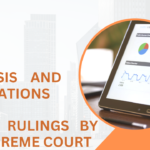Bitcoin mining is the process of creating new bitcoins by solving complex math problems. Cloud computing allows bitcoin miners to access cheaper computing power through remote data centers. Let’s explore the world of bitcoin mining cloud computing.
Thank you for reading this post, don't forget to subscribe!What is Bitcoin Mining?
Bitcoin mining is how new bitcoins enter circulation. Miners use specialized hardware to solve math problems and verify bitcoin transactions. When they solve a problem, they receive bitcoin as a reward.
How Does Bitcoin Mining Work?
Bitcoin mining works like a lottery. Miners compete to solve a mathematical problem based on a data set called a “block header”. Solving this problem is known as proof-of-work. The first miner to solve the problem adds the block to the blockchain and receives bitcoin as a reward.
Key Terms in Bitcoin Mining
- Block: A group of bitcoin transactions with a header for miners to solve
- Blockchain: The decentralized ledger containing all bitcoin transactions
- Hash Rate: A miner’s processing power measured in hashes per second
Learning more key terms about bitcoin mining will help you understand the process.
Why is Bitcoin Mining Necessary?
Bitcoin mining secures the bitcoin network. Miners verify and record all bitcoin transactions, preventing fraud. This allows bitcoin to function as a trustless decentralized payment system.
Introducing Cloud Mining
Cloud mining enables users to mine bitcoins without managing hardware. A cloud mining company handles the hardware and charges a fee.
How Does Cloud Mining Work?
With cloud mining, users pay a contract fee to rent computing power from a mining company’s data centers. The company mines bitcoin and pays users in bitcoin based on the rented hash rate minus fees.
Cloud Mining Pros and Cons
| Pros | Cons |
|---|---|
| No hardware costs | Contract and maintenance fees |
| Start mining instantly | Bitcoin mining risk still exists |
| Suitable for new miners | Scams are common |
Is Cloud Mining Profitable?
Profitability depends on bitcoin prices and mining difficulty levels. As difficulty rises, revenues fall unless bitcoin prices also rise significantly. research companies carefully before investing.
Good Candidates for Cloud Mining
- New miners uncertain about managing hardware
- Miners with limited space or electricity access
- Users wanting portfolio diversification
Pay attention before signing any cloud mining contracts.
Selecting a Cloud Mining Provider
Many factors influence the decision to choose a cloud mining provider. Compare companies across these key aspects:
Reputation and Reviews
- How long has the company operated successfully?
- What do independent customer reviews say?
- Have they handled past issues professionally?
A reputable company is essential for cloud mining.
Mining Equipment and Data Centers
- What mining rigs does the company use? Newer models like Antminer S19s are ideal.
- Where are their data centers located? Cooler climates reduce cooling costs.
Advanced equipment and infrastructure increases mining productivity.
Fees and Pricing Structure
- What are the initial and recurring fees?
- How are payouts calculated?
- Are payments in bitcoin or other coins?
Evaluate the full cost and profit potential upfront.
Security and Transparency
- Does the company publish its mining operations data?
- How do they secure customer info and holdings?
- Can they prove bitcoin reserves match obligations?
Vet security measures before providing personal data.
Warning Signs of Cloud Mining Scams
- Too-good-to-be-true returns – Any promise of guaranteed high returns should raise suspicions. Returns rely heavily on bitcoin prices and mining difficulty.
- Missing contact info – Legitimate firms provide multiple contact methods including phone numbers and addresses.
- Bad reviews – Check third-party review sites for negative experiences and allegations. Beware of review manipulation.
Avoid entrusting money to opaque or questionable organizations.
Best Practices for Responsible Cloud Mining
Responsible cloud mining reduces risks and promotes ethical behavior. Here are some best practices to follow:
1. Research Multiple Providers Extensively
- Search forums and review sites for genuine customerfeedback
- Join Facebook groups to engage current customers
- Check providers’ websites for transparency
Make an informed decision – don’t jump to choose the first company you see advertised.
2. Start Small to Test Services
Before investing substantial sums:
- Purchase small pilot contracts to assess the platform
- Monitor platform access, payout schedule, and responsiveness
- Scale up slowly as trust develops
Test the waters before full commitment reduces regret if issues emerge.
3. Promote Eco-Friendly “Green” Mining
Seeking renewable energy-powered mining helps the planet by:
- Reducing fossil fuel dependence
- Lowering carbon emissions
- Supporting cleaner technologies
Prioritizing eco-mining aligns with ethical 21st century values.
The Future of Cloud Mining
Technological improvements should make cloud mining more accessible and profitable over time.
Developments That May Disrupt the Sector
Here are some innovations that could shape cloud mining going forward:
- Quantum computing – Would render current proof-of-work hashing obsolete, forcing new protocols
- Edge computing – Could enable more decentralized pooled mining options
- Renewable mining clusters – Solar, wind or hydro-powered mines lower costs and environmental toll
It’s wise to expect changes as cutting-edge computing and energy solutions emerge.
Projecting Cloud Mining in 2030 and Beyond
Looking towards 2030, cloud mining may shift towards:
- Greater efficiency and flexibility – With dynamic tuning of hardware
- Lower barriers to entry – If governments subsidize eco-mining infrastructure
- More geographic diversity – Expanding access outside major mining hubs
These changes could bolster decentralization and profitability.
Frequently Asked Questions
-
Is cloud mining really profitable?
Cloud mining can be profitable if done correctly. Much depends on bitcoin prices, mining difficulty, equipment quality, and provider fees. Crunch numbers carefully when assessing contracts.
-
What are signs of a cloud mining scam?
Red flags include guaranteed returns, missing contact info, bad reviews and refusal to provide operational details. Extreme claims or secrecy indicates potential fraud.
-
How can new miners start cloud mining?
For beginners, choose an established provider like Genesis Mining. Start with small contracts first. Read forums and join Facebook groups to learn from current customers before investing larger sums.
-
Will quantum computing destroy bitcoin?
Quantum computing power could undermine existing proof-of-work security. However, bitcoin developers are already designing upgrades like quantum-resistant signatures to maintain robust blockchain protection.
-
Why is green cloud mining better?
Eco-friendly mining via renewable energy doesn’t burden the climate. It also positions providers to benefit from future carbon taxation schemes as governments prioritize decarbonization.
Summary
Cloud mining introduces easier and faster bitcoin mining for many users. Selecting a reputable company and mining responsibly provides the best opportunity for success. Technological improvement could enhance access and sustainability if renewable energy power gains traction. With prudent management, cloud-based infrastructure should have a bright future enabling anyone to participate in bitcoin mining.










